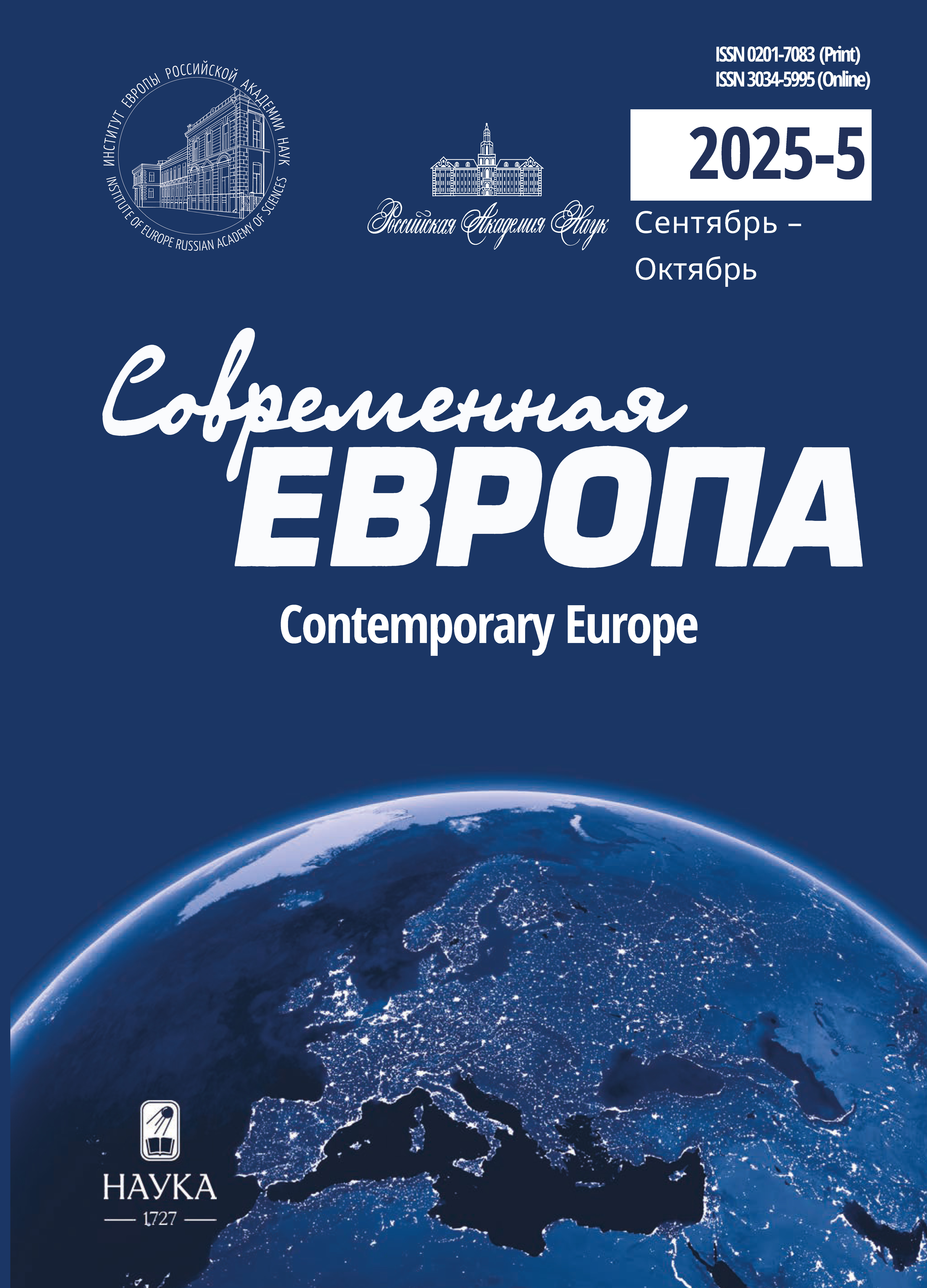The Image of the USSR in the Czechoslovak-American Diplomatic Discourse During the Second World War
- Authors: Zorin A.V.1
-
Affiliations:
- Vyatka State University
- Issue: No 5 (133) (2025)
- Pages: 191-202
- Section: PAGES OF HISTORY
- URL: https://cardiosomatics.ru/0201-7083/article/view/695697
- DOI: https://doi.org/10.31857/S020170832505016X
- ID: 695697
Cite item
Abstract
The article provides analysis of various primary sources (diplomatic correspondence, public speeches, interviews and articles in American media, memoirs) about the visits of Czechoslovak politicians in exile E. Benes and J. Masaryk to the US during World War II. Their negotiations with American diplomats and government officials, as well as interviews and public speeches in the US were often devoted to relations with the USSR. The author highlights the main aspects of their perception of Russia and concludes that it was multifaceted and contradictory. On the one hand, the USSR was perceived as a partner and an important ally, on the other hand, as a potential threat and a source of problems. Czechoslovak politicians emphasized the need to maintain and deepen close relations with Moscow, to overcome its hostility, and to stimulate the development of democratic tendencies in the USSR. At the same time, they were not entirely confident in J. Stalin's intentions and remained wary of his plans. In general, the perception of the USSR broadcasted by Czechoslovak politicians in the United States was complementary, their opinion contributed to strengthening the positive image of Russia in America. This was a consequence of their pragmatic approach, as well as Moscow's cautious policy. American politicians and foreign policy experts perceived these opinions and recommendations as an important source of information. The obtained results supplement and expand our understanding of the perception of the USSR by the leaders of the Czechoslovak emigration during the Second World War and to highlight some ways for promoting a positive image of Russia.
About the authors
Artem Viktorovich Zorin
Vyatka State University
Email: arzor@list.ru
Doctor of Sciences (History), Professor Kirov, Russia
References
- Данн Д. (2004) Между Рузвельтом и Сталиным. Американские послы в Москве. Три квадрата, Москва. 470 с.
- Марьина В.В. (2013) Второй президент Чехословакии Эдвард Бенеш: политик и человек. 1884–1948. Индрик, Москва. 488 с.
- Синдеев А.А. (2020) Дипломатический фронт Великой Отечественной войны: контуры послевоенной Европы в 1944 г. Современная Европа. № 3. С. 158‒169.
- Юнгблюд В.Т. (2013) Роспуск Коминтерна в мае 1943 г.: отклики и анализ в США. Вопросы истории. № 2. С. 18–33.
- Юнгблюд В.Т., Зорин А.В. (2022) Чешские и словацкие организации в США в годы Второй мировой войны. Вестник Томского государственного университета. История. № 76. С. 89–99.
- Beneš E. (1939) Democracy today and tomorrow. Macmillan Company, New York, USA. 244 p.
- Fierabend L.K. (1966) Beneš mezi Washingtonem a Moskvou. Washington, USA. 182 p.
- Harriman W.A., Abel E. (1975) Special envoy to Churchill and Stalin, 1941–1946. Random House, New York, USA. 595 p.
- Michálek S. (1994) Československo-sovietska zmluva z roku 1943 v americkej tlači. Soudobé Dejiny. No. 6. P. 847–860.
- Smetana V. (2016) Ani vojna, ani mír. Velmoci, Československo a střední Evropa v sedmi dramatech na prahu druhé světové a studené války. Lidove noviny, Praha, Czech Republic. 663 p.
- Taborsky E. (1981) President Edvard Beneš. Between East and West, 1938‒1948. Hoover institution Press, Stanford, USA. 300 p.
Supplementary files











